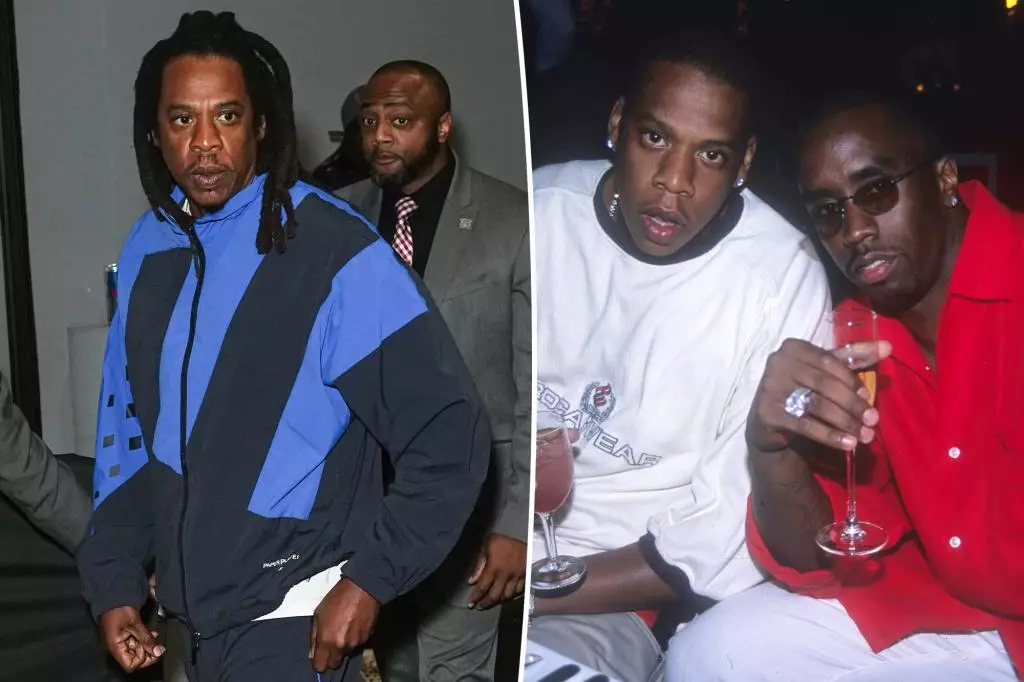In a noteworthy legal development, a New York judge has granted a woman accuser the right to proceed with her lawsuit against rap moguls Jay-Z and Sean “Diddy” Combs while remaining anonymous. This ruling, issued by Judge Analisa Torres, acknowledges the significant vulnerabilities faced by the plaintiff, thereby recognizing the complexities embedded within high-profile cases of sexual assault. The decision sheds light on the court’s delicate balancing act between judicial transparency and the rights of individuals alleging grave misconduct.
The case revolves around allegations that date back to a 2000 MTV Video Music Awards afterparty, where the plaintiff claims to have been sexually assaulted by both defendants at a notably young age. Given the allegations’ severe nature, the court has deemed it essential to prioritize the accuser’s emotional and psychological well-being by allowing her to remain nameless for the time being. This aspect highlights an emerging trend in cases involving sexual assault survivors, where anonymity can serve as a vital shield against further harm and public scrutiny.
Judge Torres explicitly outlined her reasoning for granting anonymity through a series of bullet points that reflect her consideration of multiple factors. The judge emphasized that the court does not need to articulate a detailed list of each factor, so long as it is evident that a thoughtful balance was achieved. This approach underscores the expectation that each case is unique, involving distinct circumstances that require individualized consideration rather than a one-size-fits-all legal framework.
Notably, the ruling reflects a deeper understanding of the psychological ramifications that come with sexual assault. The plaintiff has reportedly been grappling with depression, post-traumatic stress disorder, and other related health complications as a consequence of the alleged incident. By acknowledging her vulnerable state, the court appears to prioritize her recovery, signaling its sensitivity to the traumatic experiences many survivors endure while navigating legal channels.
The court’s decision, however, has drawn criticism from the defendants’ legal teams. Jay-Z’s attorney, Alex Spiro, received a sharp reprimand from the judge for the aggressive and inflammatory language used in their legal motions against the plaintiff. Torres condemned what she characterized as “combative tactics” involving personal attacks rather than focusing on the substantive merits of the case. This reprimand raises crucial questions about appropriate courtroom decorum, especially surrounding such sensitive subject matter.
The legal drama continues as both Jay-Z and Combs publicly deny the allegations, labeling them as “heinous” and part of a wider pattern of unfounded claims designed for publicity. This assertion underscores the pervasive skepticism that often surrounds high-profile sexual assault allegations, where the credibility of the accuser can become a contentious point of contention. The defendants’ arguments extend beyond the courtroom, feeding into wider societal debates regarding celebrity culture, power dynamics, and the potential for abuse in the entertainment industry.
The issue of anonymity in sexual assault cases has gained increasing attention in recent years, especially as more survivors draw parallels between their experiences and the broader societal climate surrounding sexual violence. High-profile figures often command a level of scrutiny and pressure that can be overwhelming for accusers. By permitting anonymity, the court aims to create a safer environment for survivors to pursue justice without the additional burden of public judgment.
Furthermore, granting anonymity can significantly influence how other prospective plaintiffs view the legal process. The fear of retribution and social stigma can deter many individuals from coming forward, perpetuating a culture of silence around sexual misconduct. Thus, supporting anonymity can empower more survivors to share their stories and seek recourse, ultimately fostering a legal environment that prioritizes justice and healing.
The decision by Judge Torres to allow the accuser to remain anonymous brings to the forefront critical considerations regarding the rights of individuals in such sensitive legal disputes. It highlights the need for a nuanced understanding of the psychological impact of sexual assault and the complexities that accompany high-profile cases. As society continues to grapple with these issues, it becomes essential to strike an appropriate balance between the rights of the accused and the needs of the accusers. The unfolding legal battles involving figures like Jay-Z and Sean Combs serve as reminders of the ongoing struggle for justice in the face of societal and personal challenges.
